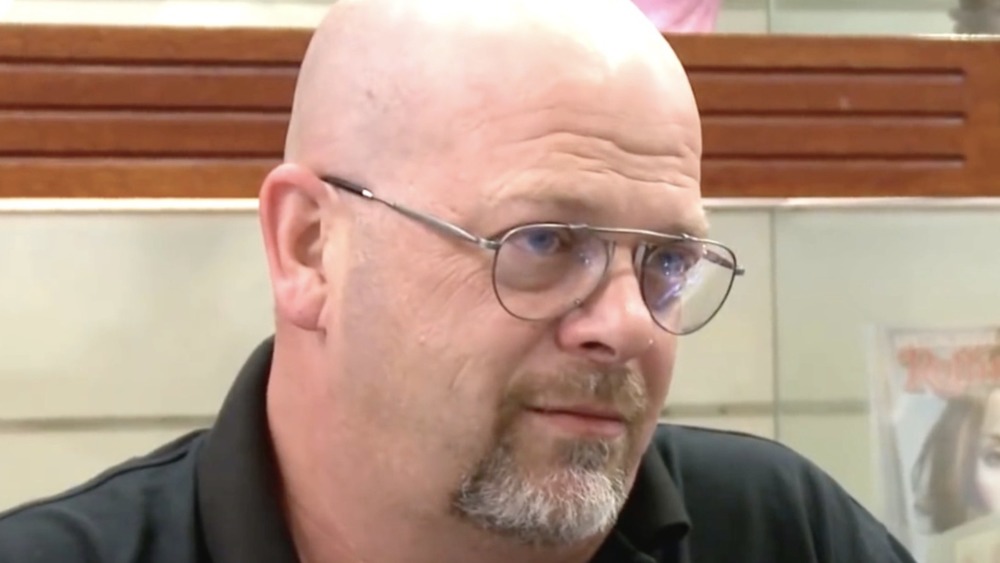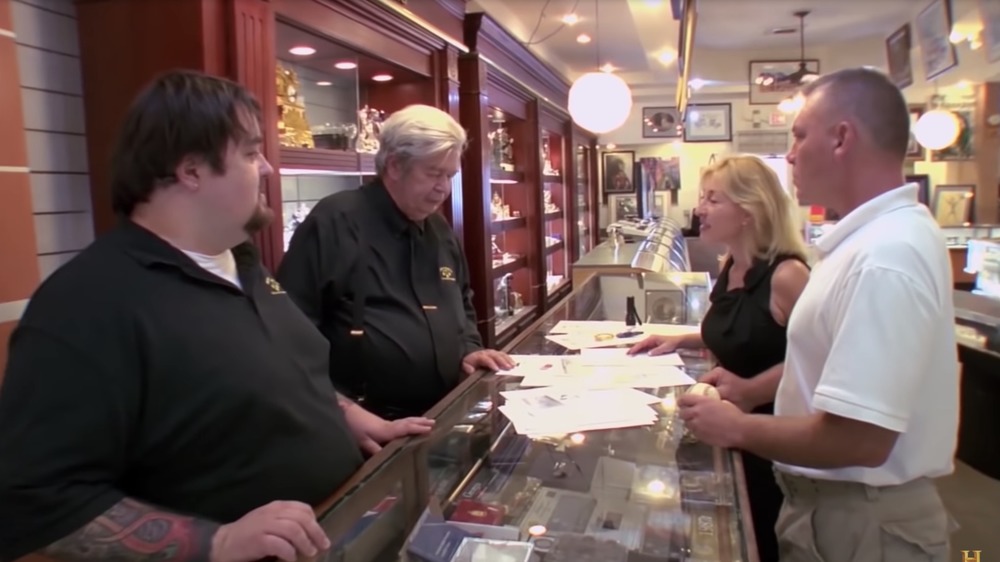The Truth About The Scripted Dialogue On Pawn Stars
The appeal of History's reality TV show Pawn Stars comes from its unique mix of larger-than-life personalities and historical trivia, set under the bright lights of Las Vegas within a world that many of its viewers find fascinating yet relatable. Rick Harrison, Corey Harrison, Chumlee, and the others who have been part of the series' 18 seasons have created a winning formula that's unlike anything else on television.
With all the content that's come out of the show since its debut in 2009, it's natural to wonder how much of Pawn Stars is scripted, and how much is truly based on what happens in the day-to-day business of a pawn shop so close to the famous Las Vegas Strip. After all, it's well known that reality shows in general aren't just free-for-alls — they all undergo some level of tweaking to create something watchable.
Here's the truth about what's "scripted" on Pawn Stars, and how this helps turn the show into something fans want to tune into week after week.
Pawn Stars relies on scripters to focus the drama
Is Pawn Stars fake? In some respects, it is, but the truth isn't always that simple. A certain amount of staging has to happen to make the show work while still operating within the bounds of national, state, and local laws. That's also in part because, as reported by the Las Vegas Review-Journal, only about one in 100 customers these days comes in to conduct actual pawn shop business. The rest are tourists treating the place like a travel destination and hotspot. So, if an object is deemed worthy to appear on the show, the seller gets coached on how to act so they can dramatize the actual transaction on television. Plus, while the show's dialogue isn't scripted in a traditional sense, a bit of nudging here and there helps direct Pawn Stars into something people want to watch.
Brent Montgomery, an executive producer of Pawn Stars, told The Odyssey Online the truth about what actually happens behind the scenes. The show uses "scripters" to shape dramatic moments and push certain storylines. "We found really smart scripters to feed the characters organic information," he said.
With reality television, writers don't have the same role as they do on TV shows that are written and acted. According to Andy Dehnart, MSNBC's television editor, these writers more often take on the roles of producer or editor, finding a storyline from hundreds of hours of footage and turning it into a cohesive narrative on screen. "Reality show writers decide which characters and story lines to follow each week, and which footage should be used to tell those stories," Dehnart explained during a Today Q&A, saying that these plots come from existing material.
Montgomery's comment indicates that Pawn Stars writers simply find a narrative thread, then prompt the characters to focus in and develop that subject in a way that appeals to viewers. So, there's no script, but that doesn't mean a story isn't being shaped, manipulated, and molded on Pawn Stars. And who can argue with the show's runaway success? It's a tactic that seems to be working.

